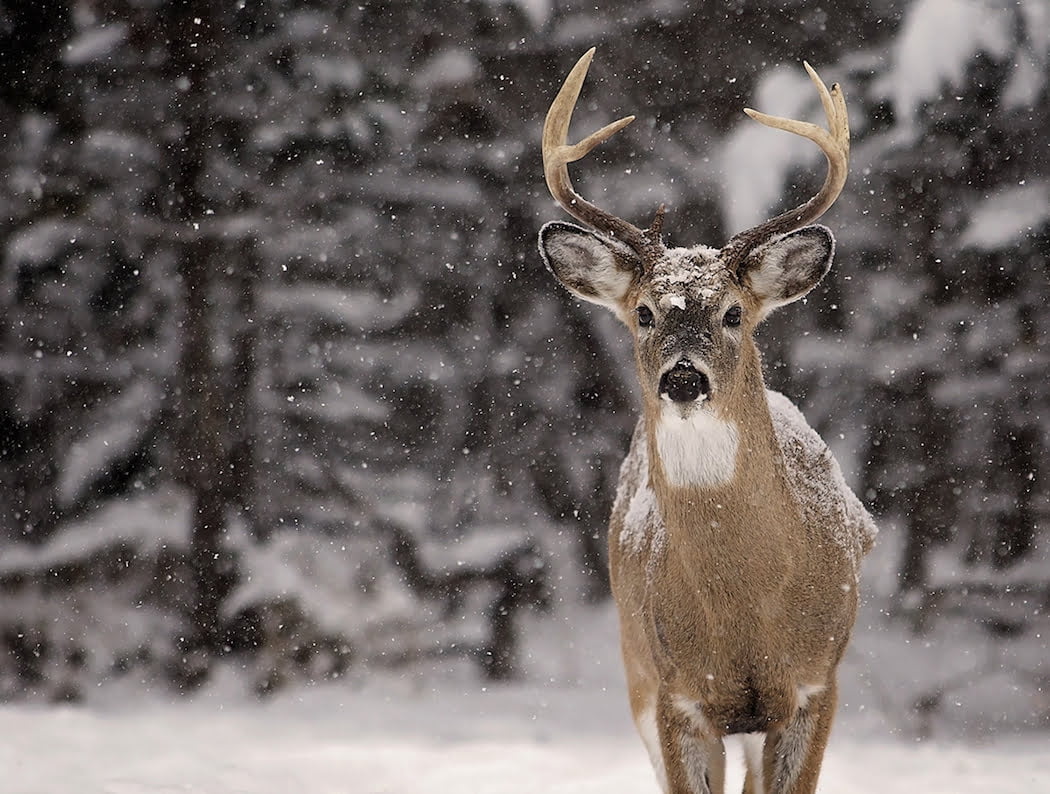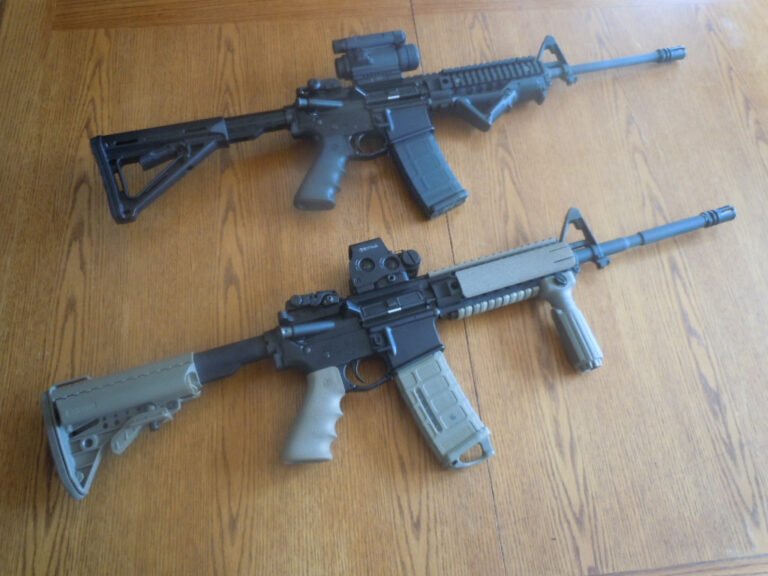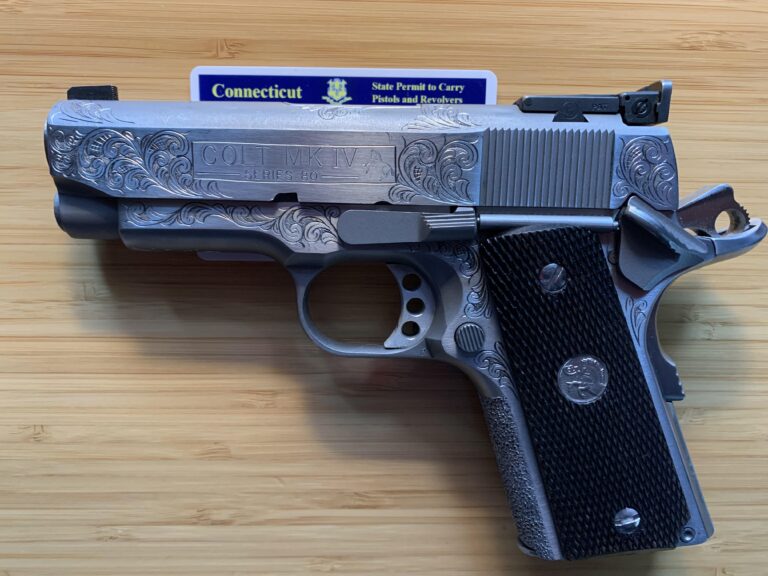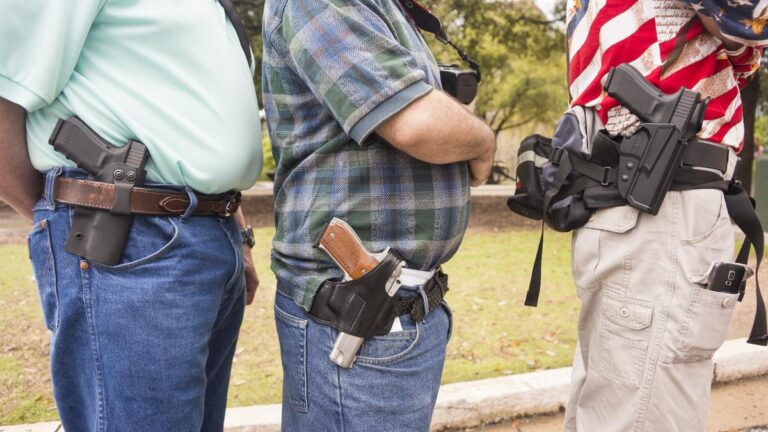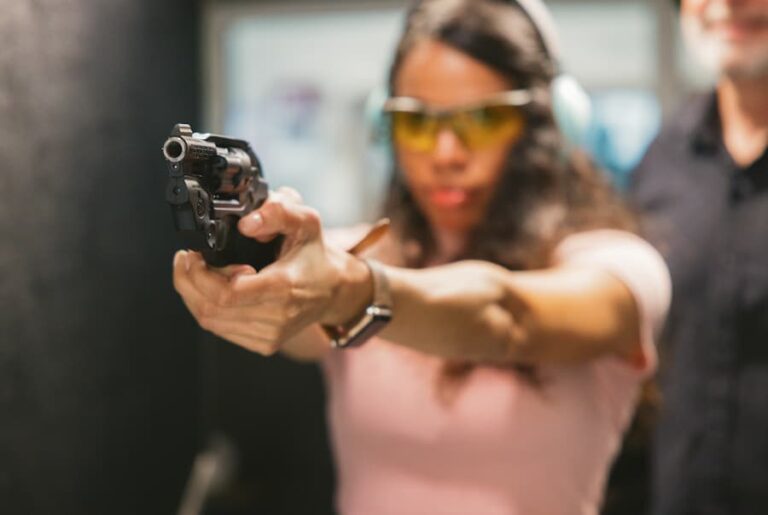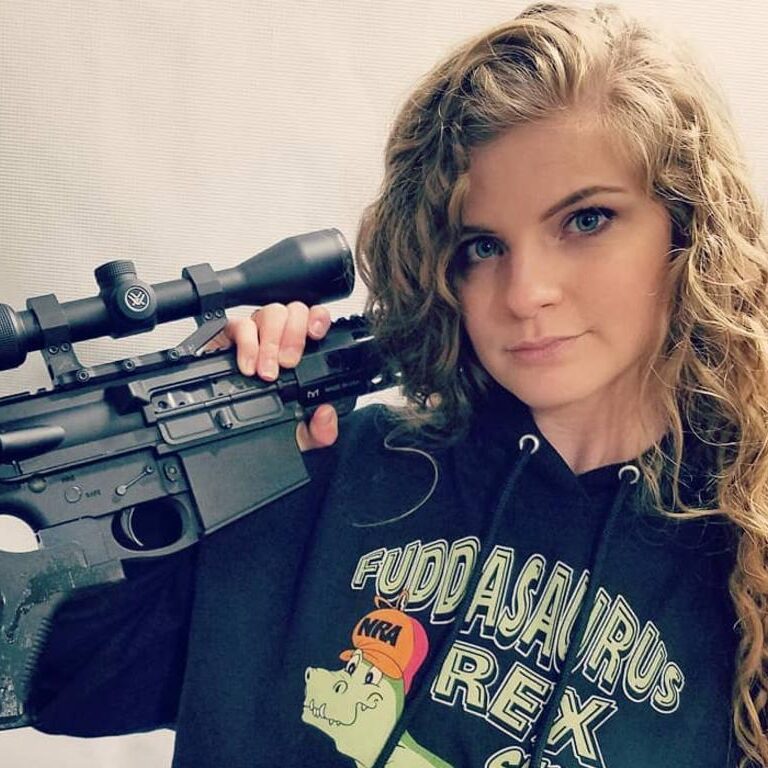Connecticut Hunting
Connecticut may be one of the smallest states in the US in terms of landmass, but it offers a wide array of hunting opportunities for enthusiasts. While the state boasts various small game species, the most abundant big games that hunters can pursue are Turkeys and Deer. However, it’s important to note that hunting bears is strictly prohibited in Connecticut, and they are reserved only for recreational sightseeing.
Connecticut Hunting Regulations
To ensure a safe and sustainable hunting experience, hunters in Connecticut must comply with all federal, state, and local hunting laws, regulations, and firearm ordinances. Additionally, there may be specific regulations imposed by municipalities and private landowners.
Firearm Hunting Regulations
When it comes to the possession and use of firearms for hunting, Connecticut has specific regulations in place.
500 Foot Regulation
It is unlawful to possess a loaded firearm, hunt wildlife, or discharge a firearm within 500 feet of buildings containing humans, domestic animals, or buildings used to store combustible substances and materials. However, you can obtain permission from the owner or their families/spouses to make an exception. This regulation does not apply to archery hunting.
Possession of Hunting Firearms in Vehicles
Connecticut strictly prohibits the possession of loaded firearms in vehicles, regardless of whether they are hunting firearms or not. Only registered handguns and revolvers are allowed to be carried in vehicles under state gun laws.
Use of Rifles and Handguns for Hunting
Connecticut does not permit the use of rifles, revolvers, and handguns that operate with a .22 or larger ammunition for hunting. Additionally, in areas leased for hunting by the state or areas requiring hunting permits, all types of rifles and handguns are prohibited. Using handguns and rifles to hunt waterfowl, turkey, and migratory birds in the state is also illegal, except for crows.
Hunting with Shotguns
Shotguns that fire more than two shots are not allowed for hunting on state-owned or leased lands or private lands. The use of lead shot for waterfowl hunting is also prohibited. However, you can use shotguns with less than 10 gauge for hunting waterfowls and other migratory bird species.
For turkey, crow, and deer hunting in Connecticut, shotguns must have a maximum of 3 shells (2 in the magazine and 1 in the chamber). Unplugged shotguns are allowed during the goose season in September, subject to additional regulations depending on the hunting location.
Hunting with Muzzle Loaders
Muzzleloaders are legal for hunting in Connecticut and can be either shotguns or rifles with a minimum of .45 calibers. The use of smoothbore muzzleloaders, like shotguns, is prohibited. However, you can use muzzleloading rifles with approximately .36 calibers and round ball ammunition on state-owned lands.
Bow Hunting Regulations
Bow hunting is a popular form of hunting in Connecticut, and the state has specific regulations governing its practice.
Bowhunter Education
Before hunting with a bow and arrow, hunters in Connecticut must complete a bowhunter education course, especially for hunting small game.
Lawful Bow and Arrows
Not all types of bows and arrows are acceptable for hunting in Connecticut. For turkey and deer hunting, the bow must be long, possess compound bows, recurved, and have a minimum draw weight of 40 pounds. Mechanical strings are permitted, but coating projectiles with chemicals, poison, or drugs is strictly prohibited.
Crossbows
Crossbows are legal for hunting various games in Connecticut, provided they have a draw weight of at least 125 pounds and a permanently fixed rifle with an efficient automated safety device. The use of adjustable crossbow stocks is permitted, but folding stocks are not allowed. The arrow used should be at least 18 inches long, excluding the broadhead length. For deer and turkey hunting, the arrowhead should have a minimum of two blades and be no more than 8 inches wide.
Bag Limit Regulation
Bag limits refer to the number of game species a hunter can legally take within a specific time frame. Connecticut has different bag limits for various games and seasons to ensure sustainable hunting practices.
Daily Bag Limit
The daily bag limit specifies the maximum number of game species a hunter can take in a single day, typically within the hours between 12 am and 12 am the next day. It is essential for hunters to adhere to this limit to preserve wildlife populations.
Possession in Storage
The possession in storage limit sets a maximum amount of non-migratory wildlife and game species that hunters can store for a specific game during the entire season. Exceeding this limit is a violation of bag limit regulations. For migratory games such as snipe, waterfowls, and coots, the possession in storage limit is governed by federal hunting laws.
Season Bag Limit
The season bag limit restricts the number of wildlife and games that hunters can take during the open season. Abiding by this limit ensures responsible and ethical hunting practices.
Hunter Harassment Law
To safeguard hunting activities in the state, Connecticut has hunter harassment laws in place. These laws prohibit individuals from interfering with legal hunting practices in wildlife areas or any other locations within the state.
The law prohibits actions such as:
- Driving wildlife to disrupt hunting activities.
- Preventing hunting by impeding or harassing hunters.
- Using artificial or olfactory stimuli to disturb wildlife behavior.
- Creating barriers to impede or limit hunting activities.
- Entering a hunter’s line of fire while attempting to shoot down a game.
- Disturbing publicly or privately owned hunting properties without permission.
Connecticut Hunting License Permits and Tags
Before embarking on any hunting activities, hunters in Connecticut must obtain the appropriate licenses or permits. The state offers various hunting licenses for residents and non-residents, catering to different interests and preferences.
Firearms Hunting License
This is a general hunting permit that allows both residents and non-residents to engage in firearm hunting. The cost of the license varies, with adult residents paying $19, teenage residents paying $10, and non-residents paying $91.
Firearms Hunting and Inland Fishing License
This license permits both hunting and inland fishing in Connecticut. It is available to residents and non-residents, with prices set at $38 for adult residents, $19 for teenage residents, and $110 for non-residents.
Firearms Hunting and All Waters Fishing License
Holders of this license can enjoy both firearm hunting and fishing in all water bodies within Connecticut. The license is available to residents and non-residents, priced at $40 for adult residents, $20 for teenage residents (16 and 17 years), and $120 for non-residents.
Firearms Hunting and Marine Water Fishing License
This license is valid for the combination of firearm hunting and marine water fishing in Connecticut. It is available for both residents and non-residents, with prices set at $25 for adult residents, $13 for teenage residents (16 and 17 years), and $94 for non-residents.
Archery Deer and Small Game Hunting License
This license permits the hunting of deer with archery equipment and allows for the pursuit of small game species in Connecticut. It is available to residents and non-residents, with prices set at $41 for adult residents, $21 for teenage residents (16 and 17 years), and $135 for non-residents.
Archery Deer and Small Game Hunting License Plus Water Fishing License
This license combines the hunting of deer and small games with fishing in all water bodies within the state. It costs $65 for adult residents and $33 for teenage residents (16 and 17 years).
Trapping License
This license allows hunters to set traps or bait wildlife and games in Connecticut. It costs $34 for adult residents, $17 for teenage residents (16 and 17 years), and $250 for non-residents.
Licenses Based on Age
Connecticut also issues hunting licenses based on age, including:
Junior Firearm Hunting License
This license is issued to residents and non-residents of Connecticut between the ages of 12 and 15. The cost is $11 for both residents and non-residents.
Junior Archery Deer and Small Game License
This license allows residents and non-residents between the ages of 12 and 15 to hunt deer and small game in Connecticut. The price is $10 for residents and $19 for non-residents.
Junior Trapping License
This license is only valid for residents of Connecticut under the age of 15. It costs $11.
Annual Hunting License
This hunting license is available free of charge to residents of Connecticut who are 65 years old or older.
Annual Trapping License
This trapping license is also free of charge and available to residents of Connecticut who are 65 years old or older.
Connecticut Fishing License Permits and Tags
For anglers, Connecticut offers various fishing licenses that allow them to fish in both inland and marine waters.
Resident All Water Fishing License
This license permits fishing in both inland and marine waters and is available only to residents. The cost is $32 for adult residents and $16 for teenagers.
Residents’ Inland Fishing License
This license allows fishing only in inland waters. It costs $28 for adult residents and $14 for teenagers.
Residents Inland Fishing and Small Game Hunting
Holders of this license can fish in inland waters and hunt small game in Connecticut. It costs $38 for adult residents and $19 for teenage residents.
Residents All Water Fishing Bow and Arrow Permit Plus Small Games and Deer Hunting
This comprehensive license allows fishing in all waters and archery hunting of deer and small game animals. It costs $65 for adult residents and $32 for teenage residents.
Non-Residents Season Inland Fishing License
This license is issued to non-residents who wish to fish in inland waters. It costs $55.
Non-Residents Season All Waters Fishing License
Non-residents can obtain this license, which permits fishing in both inland and marine waters. The cost is $63.
Non-Residents 3 Days Inland Fishing License
This short-term license is available for non-residents who want to fish in inland waters for just three days. It costs $22.
Residents Marine Water Fishing License
Holders of this license can fish in marine waters. It costs $10 for adult residents and $5 for teenage residents.
Residents One Day Marine Water Fishing
This license allows residents to fish in marine water for one day. It costs $5 for adult residents and $3 for non-residents.
Residents Marine Water Fishing and Firearm Hunting
This license permits the combination of fishing in marine water and hunting during firearm season. It costs $25 for adult residents and $13 for teenage residents.
Non-Residents Marine Fishing License
Non-residents can obtain this license for fishing in marine waters in Connecticut. It costs $15.
Non-Residents Marine Water Fishing and Firearms Hunting License
This license permits non-residents to fish in marine waters and hunt with firearms. It costs $94.
Non-Residents Three Days Marine Fishing License
This short-term license is available for non-residents to fish in marine waters for three days. It costs $8.
Armed Forces Marine Water Fishing License
Members of the US military or National Guard can obtain this special license for fishing in marine waters in Connecticut. It costs $10.
Armed Forces Inland Fishing Permit
This special license is issued to members of the US military or National Guard for fishing in inland waters in Connecticut. It costs $28.
Armed Forces Inland Fishing Permit with Small Game Firearms Hunting
This license allows members of the US armed forces to fish in inland waters and hunt small game species in Connecticut.
Armed Forces All Water Permit
This permit grants members of the Armed Forces permission to fish in all water bodies in Connecticut.
Connecticut Hunting Season 2022/2023
Connecticut enjoys favorable weather conditions for hunting, and the 2020/21 hunting season offers various opportunities to engage in this popular outdoor activity.
Connecticut Deer Hunting Season
- Archery Season: September 15th to December 31st
- Shotgun and Rifle Season (Public Land): November 18th to December 8th
- Shotgun and Rifle Season (Private Land): November 2nd to December 31st
- Muzzleloader Season (Private Land): December 9th to December 31st
- Muzzleloader Season (State Lands): December 9th to December 22nd
Connecticut Turkey Hunting Season
- Fall Archery Season: September 15th to September 31st
- Fall Firearm Season: October 3rd to October 31st
Connecticut Small Games Hunting Season
- Cotton Rabbit Season: October 19th to December 31st
- Squirrel Season: September 1st to December 31st
- Woodchuck Season: March 16th to November 16th
- Chukar Partridge Season: October 17th to December 31st
- Quail Season: October 17th to November 2nd
- Pheasant Season: October 17th to December 31st
- Grouse Season: October 17th to December 30th
Please note that season dates may vary based on different hunting zones in Connecticut. Make sure to stay informed about specific dates and regulations for the area you plan to hunt in.
Connecticut Wildlife Game and Fish
Connecticut’s diverse habitats offer a range of wildlife and game species for hunters to pursue.
Connecticut Deer Hunting
Whitetail deer hunting is popular in Connecticut, not only for sport but also for the delicious venison they provide.
Connecticut Turkey Hunting
Turkey hunting is an exciting challenge in the state, with these elusive birds blending seamlessly into their surroundings.
Connecticut Duck Hunting
Duck hunting offers lively outdoor experiences in Connecticut, with fast and agile waterfowl presenting an enjoyable challenge for hunters.
Connecticut Goose Hunting
Connecticut is a favored destination for goose hunters, with species like Snow geese, Blue geese, and Canada geese abundant in the state.
Connecticut Pheasant Hunting
Pheasants are abundant in Connecticut, inhabiting meadows, wooded areas, and fields. They provide challenging hunting opportunities.
Connecticut Quail Hunting
Quail hunting is a cherished sport in Connecticut, with these small game birds inhabiting fields and farming settlements.
Connecticut Grouse Hunting
Grouse hunting presents a challenge due to the bird’s ability to blend into its surroundings. They are common in farming lands, wooded areas, meadows, and fields.
Connecticut Shooting Ranges
Connecticut provides several shooting ranges for the public to practice and enjoy shooting sports.
Some of the popular shooting ranges include:
- Wooster Mountain State Park Cooperative Shooting Range
- High Rock Cooperative Shooting Range
- Glastonbury Public Shooting Range
- Nye Holman Field Archery Range
Connecticut Hunting Land for Sale and Lease
For hunters looking to invest in hunting land, Connecticut offers various options for sale and lease.
Some available hunting lands include:
- Winchester Town, CT 06098. Litchfield County, 434 acres.
- Killingly Town, CT 06241. Windham County, 645 acres.
- Ashford, CT 06278. Windham County, 3 acres.
- Woodstock, CT 06281. Windham County, 13.6 acres.
Conclusion
Connecticut provides a wealth of hunting opportunities for enthusiasts, with its diverse wildlife, well-regulated hunting seasons, and numerous shooting ranges. Hunters must comply with the state’s hunting regulations, obtain the appropriate licenses, and respect bag limit regulations to ensure the sustainability of the state’s wildlife populations.
For both residents and non-residents, Connecticut offers an array of hunting and fishing licenses, catering to various interests and preferences. Whether it’s deer, turkey, waterfowl, or small game hunting, Connecticut provides a rich and enjoyable hunting experience for all.
FAQs;
Q1. Do I need a hunting license to hunt in Connecticut?
Yes, all hunters, both residents and non-residents, need a hunting license to hunt in Connecticut. There are various types of licenses available, depending on the type of hunting and fishing activities you wish to engage in.
Q2. What are the hunting seasons in Connecticut?
The hunting seasons in Connecticut vary depending on the species being hunted. Some of the popular hunting seasons include deer hunting (archery, shotgun, and muzzleloader seasons), turkey hunting, and small game hunting (rabbits, squirrels, etc.). Make sure to check the specific dates and regulations for each season.
Q3. Can I use a rifle or handgun for hunting in Connecticut?
Connecticut does not permit the use of rifles, revolvers, and handguns that operate with a .22 or larger ammunition for hunting. Shotguns and muzzleloaders are the primary firearms allowed for hunting in the state, with specific regulations for each.
Q4. Are there restrictions on the possession of firearms while hunting?
Yes, Connecticut prohibits the possession of loaded firearms in vehicles, regardless of whether they are hunting firearms or not. Only those with registered handguns and revolvers are allowed to possess them in vehicles. Hunters should comply with these regulations to ensure their safety and legal compliance.
Q5. Can I hunt waterfowl with a lead shot in Connecticut?
No, it is illegal to use lead shot for waterfowl hunting in Connecticut. Hunters must use non-toxic shots for waterfowl hunting, which is better for the environment and prevents lead contamination in water bodies.
